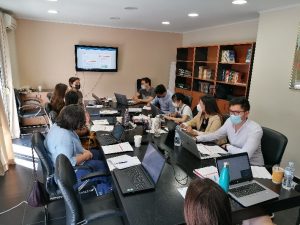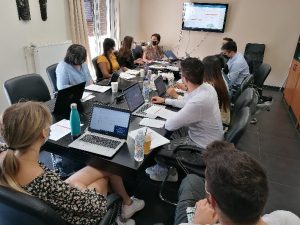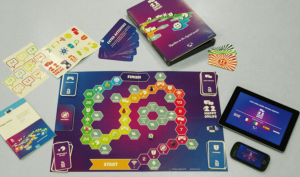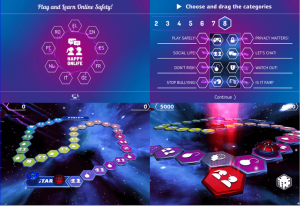Short Joint Staff Training in Athens
23-25 May 2022
The e-Protect project consortium along with the associated pool of adult trainers met in Athens between 23-25 of May 2022 for the Joint Staff Training in Athens!
The main objective of the training was to coach and inform adult educators about the methodology of the e-Protect Competency Scale, the e-Protect curricula, and the Train-the-trainer Toolkit so as to be able to deliver relevant training in their countries. The training has been proved very useful and provided a clear understanding on the utility and usefulness of digital skills, internet skills, and cybersecurity to the elderly.
The e-Protect transnational training event has provoked the establishment of a transnational community of practice of like-minded education professionals who will support the further development of the project’s educational resources to develop the digital skills of the elderly.
Download the presentations:
The Competency Scale The basics of Internet Safety Knowing the target group: Working with personas How to train older adults
Training’s agenda:
Topicalities and sessions
During the first day, the pool of trainers met at KMOP facilities, which hosted the event in Athens. The participants soon created bonds and relationships as a result of the energizer activity. Then, CARDET set the goals and expectations of the training in accordance with the participants, creating a common ground to work and collaborate. CARDET initiated a conversation to raise awareness on the need of digital skills for the elderly, accompanied with some interesting statistics on cybercrime and online security. The aims of the project were also clarified explaining the process of the Competency Scale development. After this session, KMOP explained the rationale of the e-Protect curricula which aims to provide complete educational resources to adult trainers displaying the basics of Internet Safety. Then, e-Seniors opened up on conversation about the basic characteristics of the end target group, the elderly (65+). The sessions include a valuable activity on developing a PERSONA to better understand the target group. Last, The Rural Hub closed the first day with a session on how to train older adults involving available teaching methods and practices.


Study visit at People Behind
The second day was exploited by doing a study visit the headquarters of People Behind. People Behind is a non-profit organization that aims to keep people 65+ active. Specifically, People Behind works towards a society for all ages, following the EU directions goals for Healthy and Active Aging. The moto of the organization is “A world where no one is left behind”. The organization also runs the University of Third Age. The idea for the creation of the 1st University for Third Age in Greece arose after research and exchange of best practices with the Universities for Third Age of Cyprus, London and Malaga. The face-to-face operation started in February 2020, gathering over 400 applications from people 65+. The first 3 workshops were History, Philosophy and Drama, with 120 beneficiaries. Just after Covid-19 “arrived” in Greece, People Behind carried out pilot digital activities, to explore the beneficiaries’ correspondence in case of total digital shift. Following their feedback, by September 2020 the e-learning platform of the University for Third Age was developed and via this platform the program continues until today.
Learn through play
The training ended with a pleasant note by playing the Happy Onlife online game developed. Happy Onlife is a game and a toolkit for children and adults, aimed at raising awareness of the risks and opportunities of internet and promoting the best online practices, which has been developed by the Joint Research Center. JRC researchers conceived and developed the Happy Onlife product as a peer and media edutainment toolkit promoting safe and responsible uses of ICT among adults. Happy Onlife opens a path to empower teachers and trainers in actively guiding users to become smarter, responsible, and respectful when using digital technologies and help them understand opportunities, skills, risks and consequences behind the decisions they make online.





This project has been funded with support from the European Commission. This publication reflects the views only of the author, and the Commission cannot be held responsible for any use which may be made of the information contained therein.
[Project Number: 2020-1-CY01-KA204-065949]
Privacy Policy
